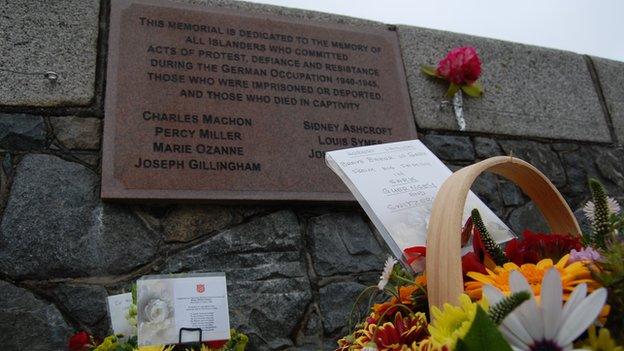Programme for Guernsey football match 'stopped by Nazis' found
- Published
Programme reveals match 'stopped' by Nazis
A recently discovered football programme has shed new light on a match featuring a team of Nazi forced labourers, thought to have been thwarted by German authorities.
The 1943 game was planned between occupied Guernsey's league champions and a "Continental XI", featuring Spanish, Belgian and French labourers.
But an eleventh-hour intervention prevented the game going ahead.
The rare programme was "remarkable", a Cambridge University historian said.
The match on 8 June 1943 did happen but instead of the Nazis' workers playing, a second Guernsey side was drafted in on the day of the game.
The teams were "revised" because of "circumstances which could not have been foreseen," a censored island newspaper reported.
"Instead of playing a Continental XI, the Occupation Champions, V.O.B.A, will meet an Island XI," The Star read.
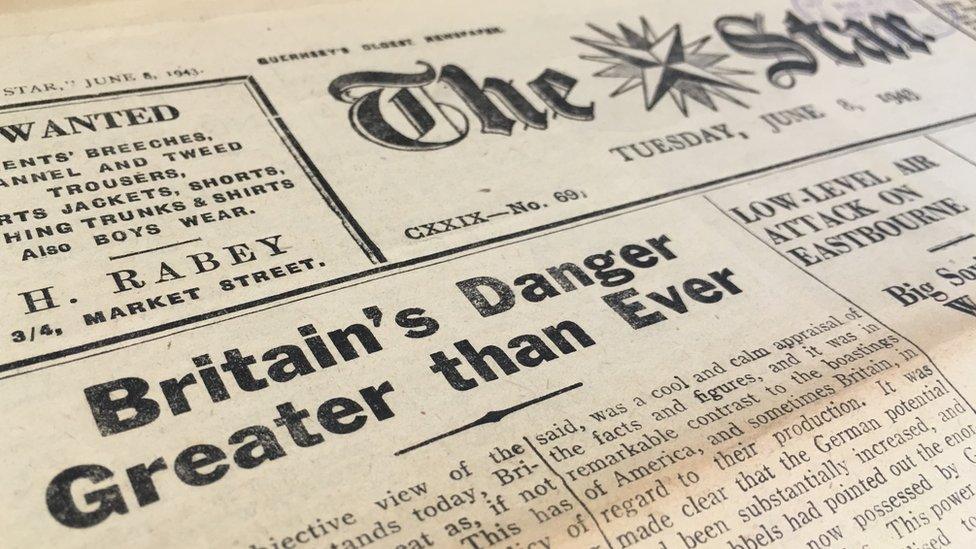
The Star and Guernsey Press newspapers were censored by the Nazis
It is likely the occupiers would have wanted to prevent the foreign workers, including some former professionals, mixing with locals, Cambridge historian Dr Gilly Carr said.
"Such solidarity would not have been welcomed by German forces at this stage in the occupation."
The document was "remarkable", Dr Carr added, and could be studied further as it provided tangible evidence of the forced labourers' presence in the island.

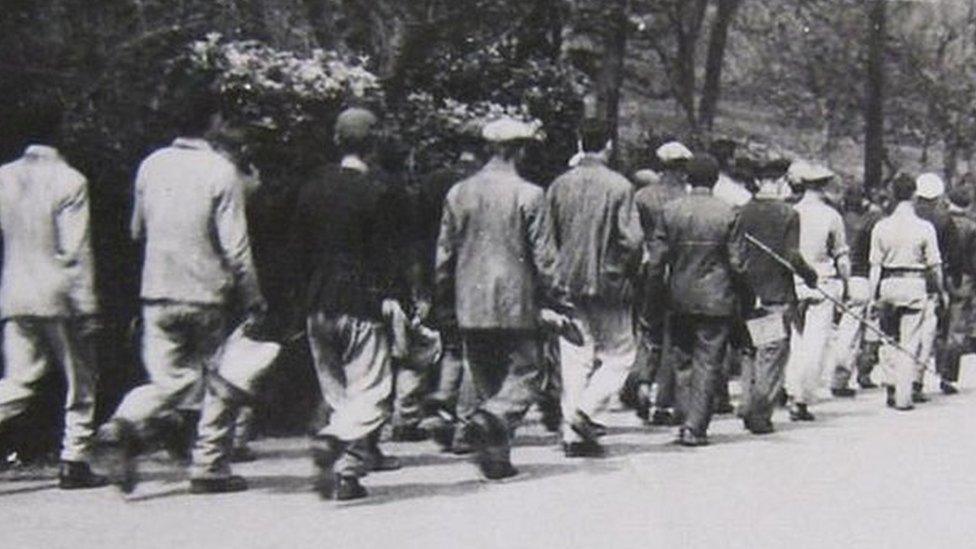
German prisoners and forced labourers in Alderney
Channel Islands' occupation
Only British soil to be occupied during the war
After the German offensive raced through France, the Germans bombed Guernsey's St Peter Port Harbour and targets in neighbouring Jersey, killing 44 people in the undefended islands
German troops landed in Guernsey by plane on 30 June 1940 - the start of five years of occupation
The islands were turned into an "impregnable fortress" on the express orders of Adolf Hitler
A fifth of all the defence works in the Atlantic Wall - a defensive line stretching from the Baltic to the Spanish Frontier - were built on the islands
Many of the coastal defences were built by forced labourers brought to the islands from other German-occupied territories including Spain, France and Poland
The island's government continued under German rule, which some regarded as collaboration
Football continued during Guernsey's occupation and was often used to raise money for needy islanders
A raffle for the 1943 match raised £163 for a children's fund run by the Star Newspaper

To the surprise of the paper, the hastily-assembled side beat the league champions 4-2, despite them having a player who would become one of Guernsey's most famous footballers.
Len Duquemin had "terrific shots at goal, only to hit the upright or crossbar, with a resounding whack," the paper reported.
After the war, the striker would go on to play for Tottenham Hotspur, scoring 134 goals in 307 appearances.
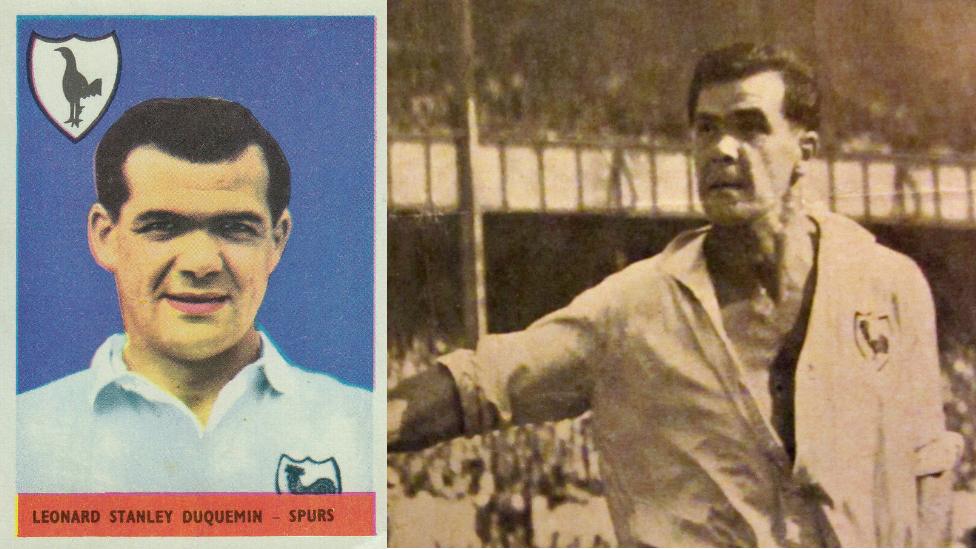
Len Duquemin played his first game for Tottenham Hotspur in 1946
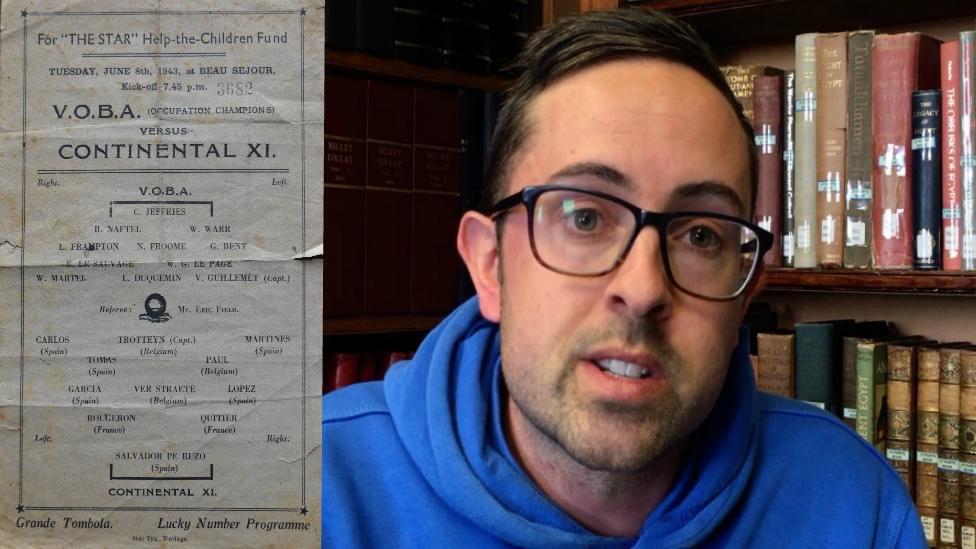
Ollie Dowding says he wants to keep the programme in his family
The matchday programme was found at the home of Dorothy Dowding, a former Star journalist, who died in January, aged 98.
"I'm a keen football fan, and my father very kindly handed it down to me," her grandson Ollie Dowding said.
Dorothy had mentioned the programme to her family after reports of another surfacing at auction in 2005 but hers was only found after her death.
"It's something we'll definitely keep in the family and I hope to pass it on to my son one day so he's got a little bit of local football history as well," Mr Dowding said.
- Published2 February 2018
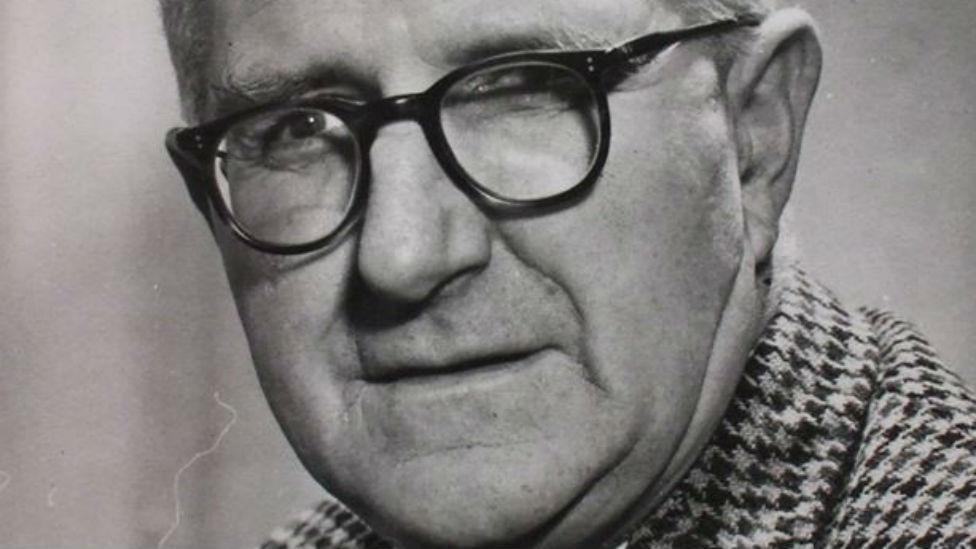
- Published20 October 2017
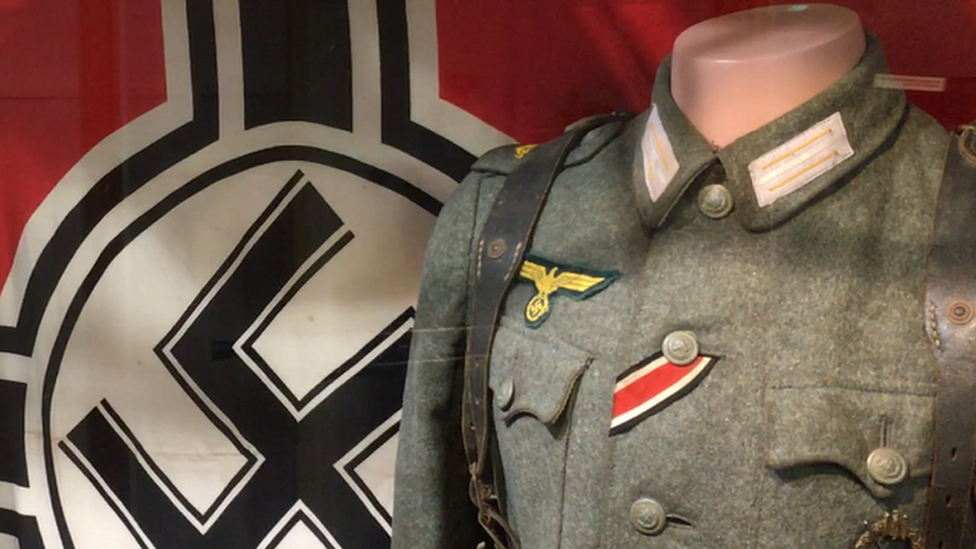
- Published28 January 2017
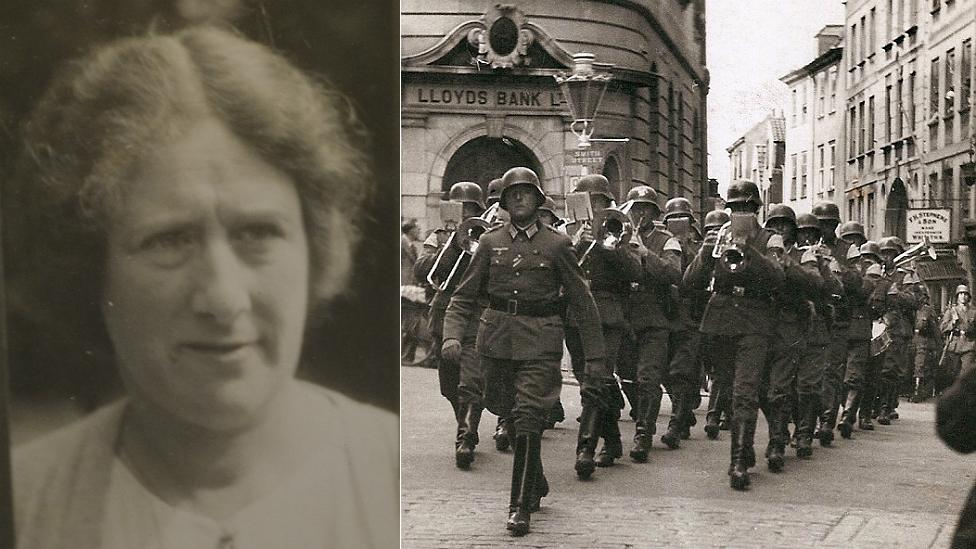
- Published29 November 2016
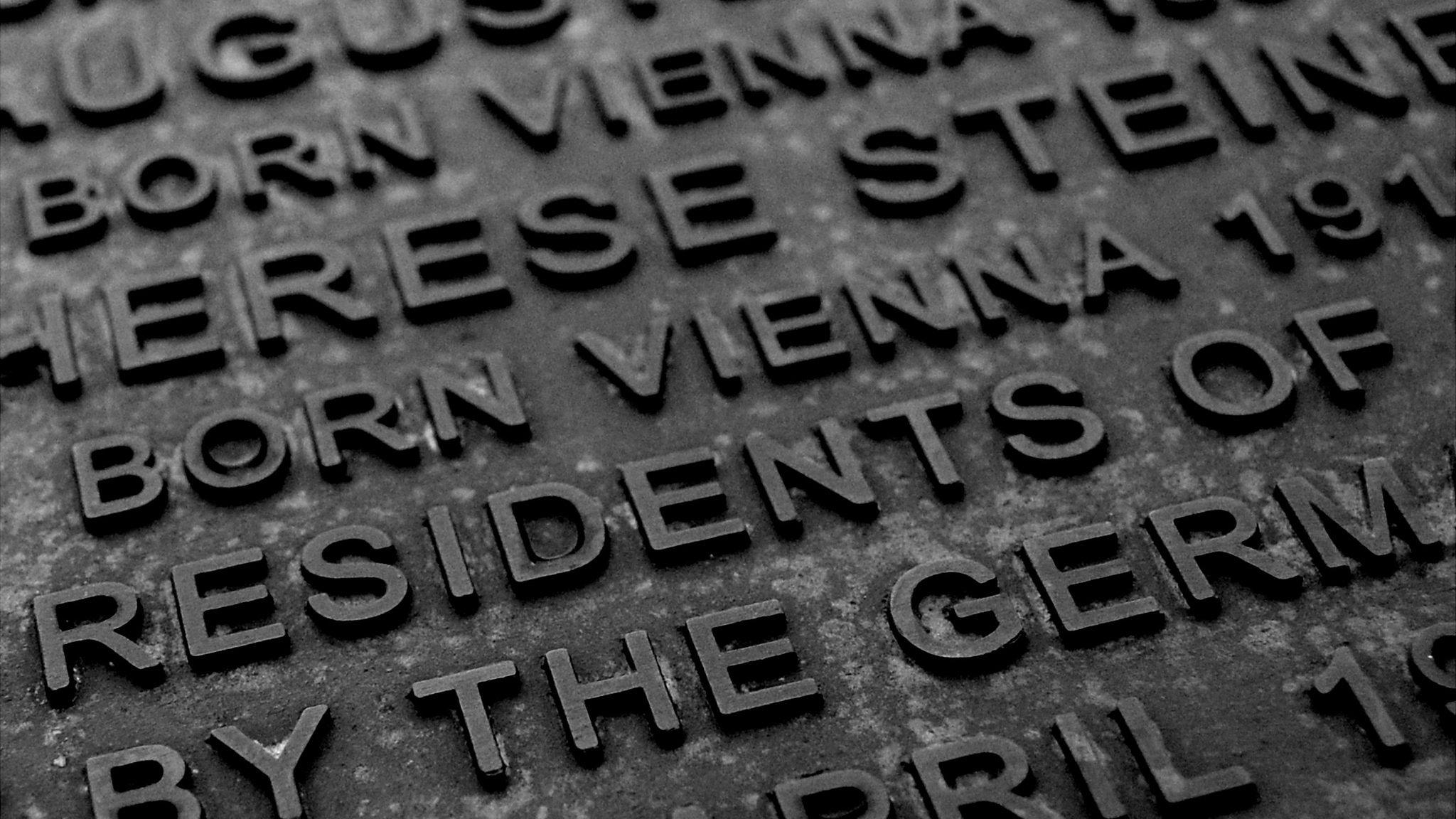
- Published8 May 2015
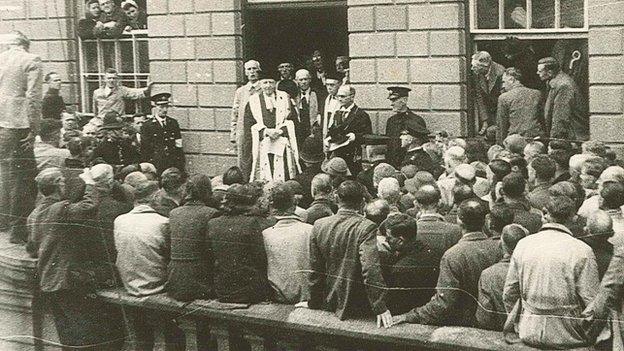
- Published4 May 2015
